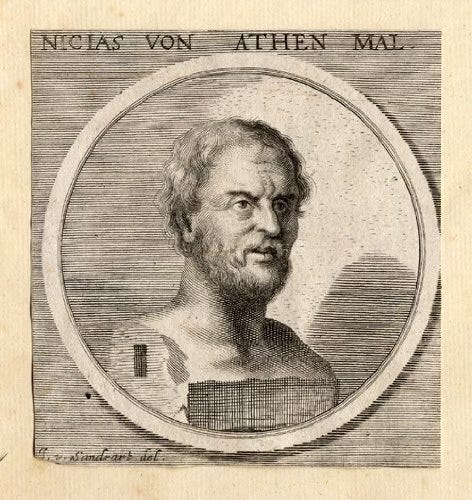Plato's Laches
Manage episode 443497420 series 3588922

The Practical Wisdom podcast I produce is not for the faint of heart. Each series of episodes presents a deep dive into a single text from the Greco-Roman wisdom tradition. From time to time, as in the case of this post, it may helpful to pause and collect together all the entries referring to the same piece of classical writing, so that listeners can go back to them at their leisure, listen to them in sequence, and gain a broader appreciation of what they are about.
Today I submit to you a collection of links to my commentary on Plato’s Laches, a dialogue in which Socrates is engaged in a discussion about the nature of courage, or bravery, with two generals, Nicias and Laches.
While trying to figure out what courage is, the trio gives us a splendid example of Socratic dialogue, where a number of possibilities are considered and discarded in turn. The piece ends in aporia, or confusion, that is a situation where no conclusion has been reached, though progress has been made by way of critical analysis.
In fact, though, as you will see in the last episode of the series, it’s pretty clear that Plato does single out one particular definition of courage as the best. And that definition fits with a classic Socratic notion, that of the unity of the virtues.
The translation I used is the one by Trevor Saunders, published in Early Socratic Dialogues, Penguin, 2005. Here are the links to the pertinent episodes:
The Philosophy Garden is a reader-supported publication. To receive new posts and support my work, consider becoming a free or paid subscriber.
8 episodes




